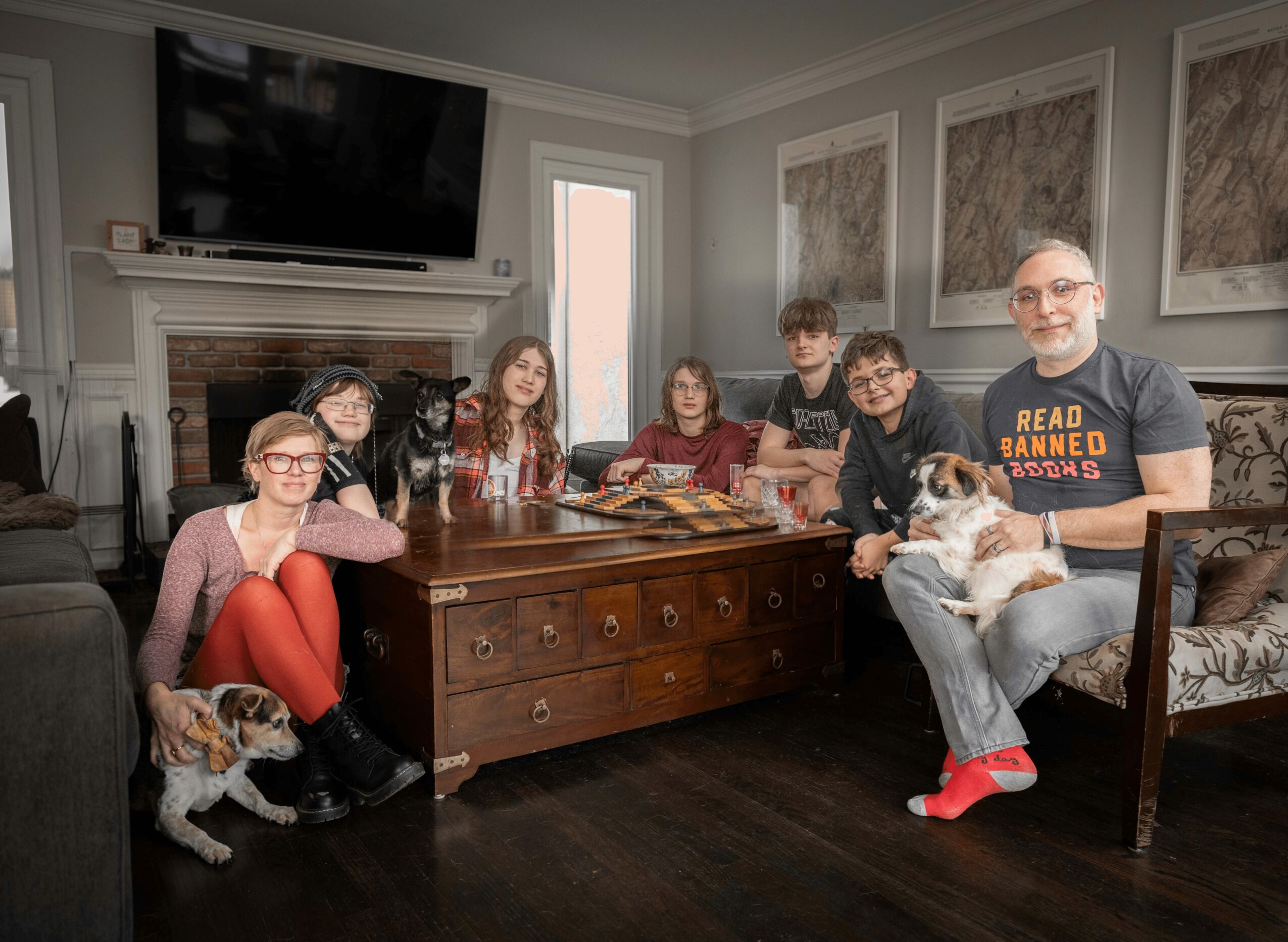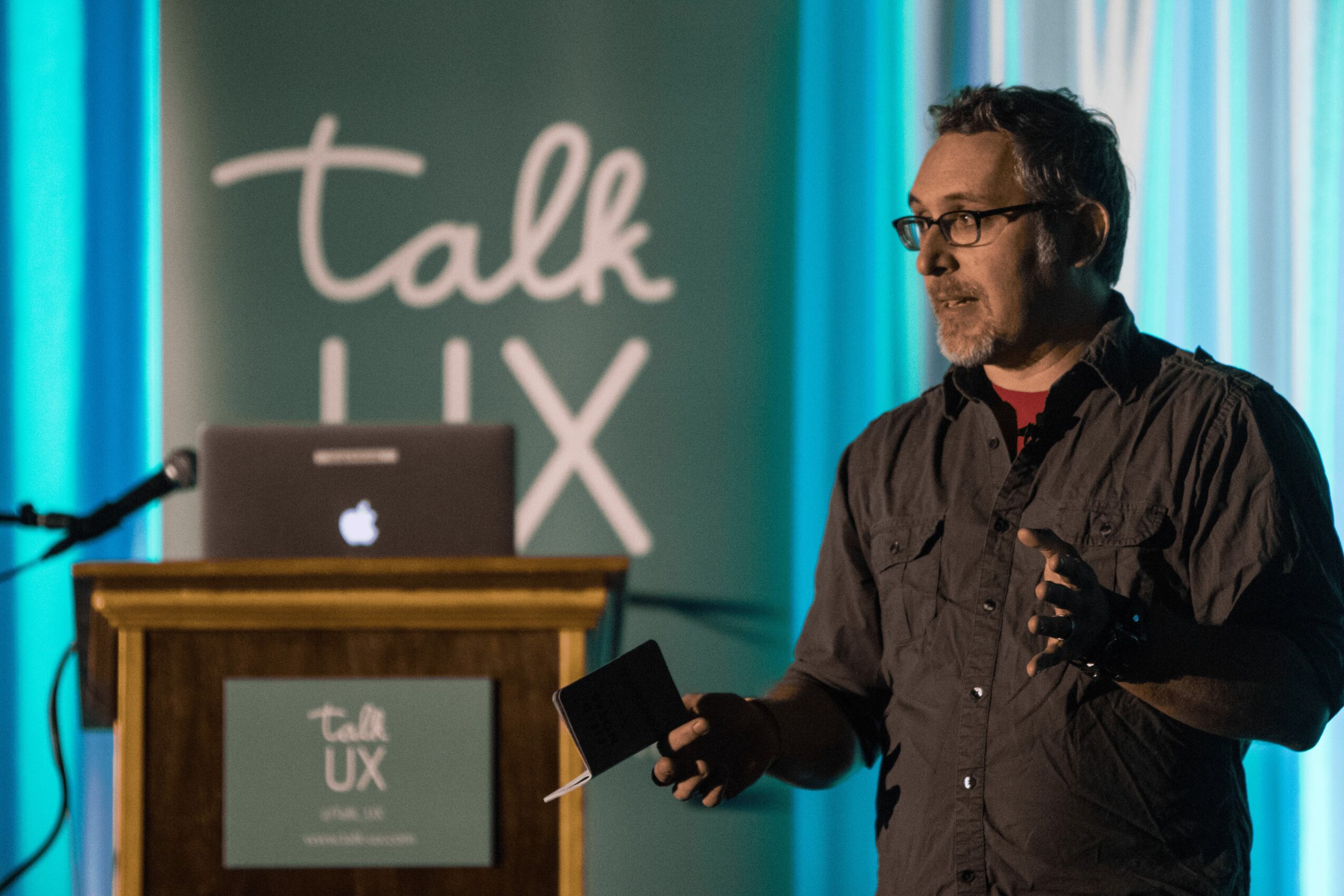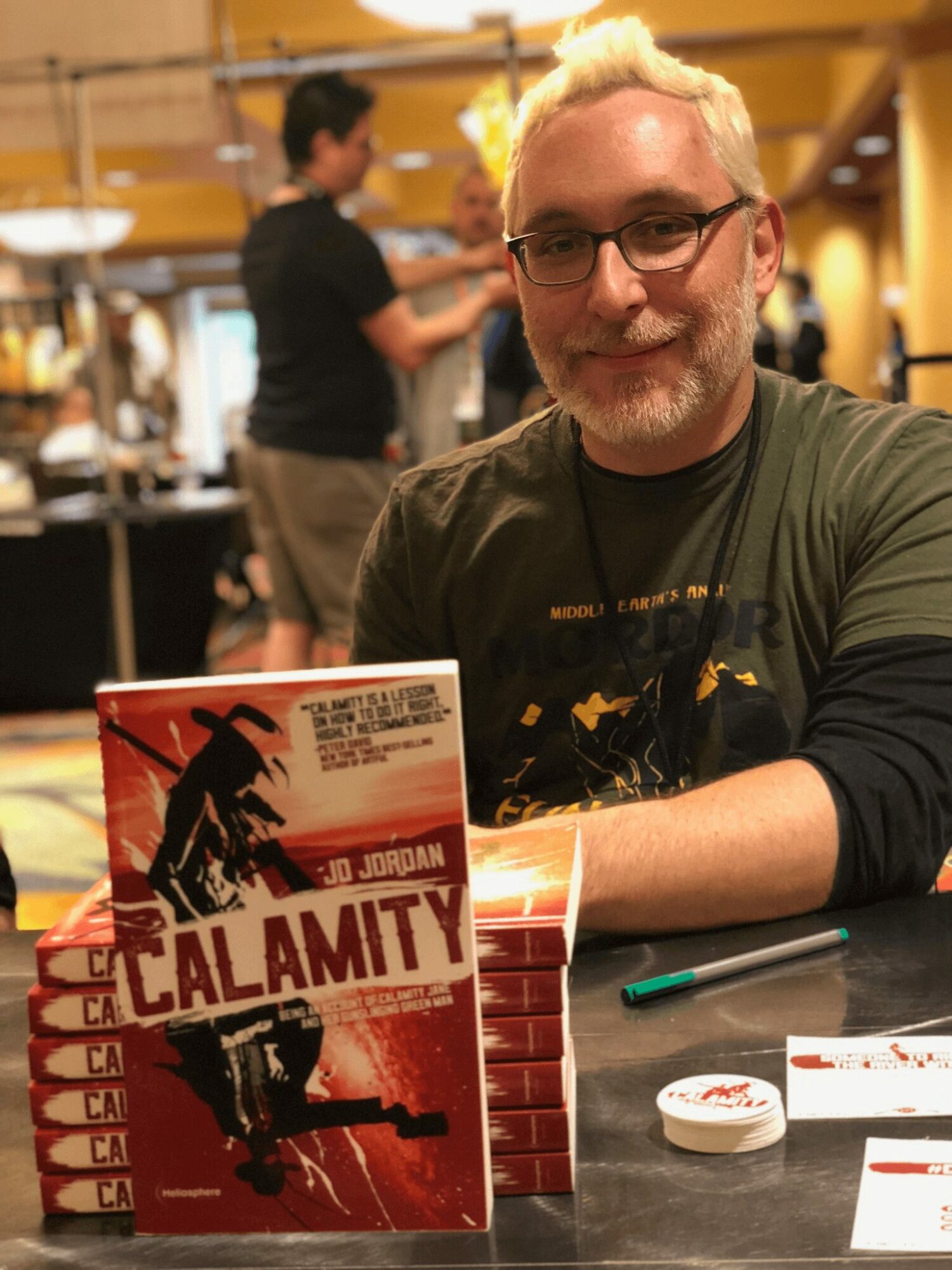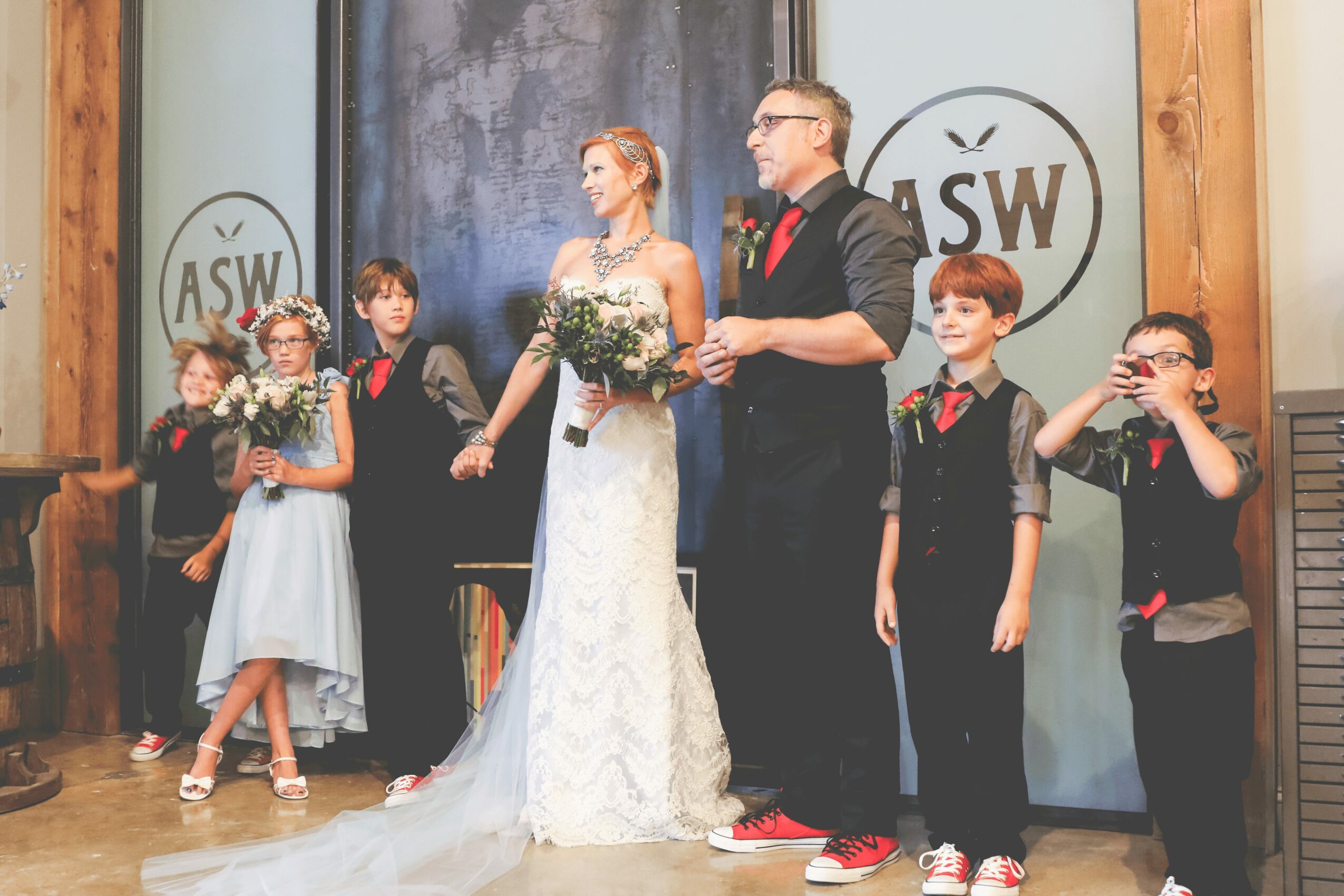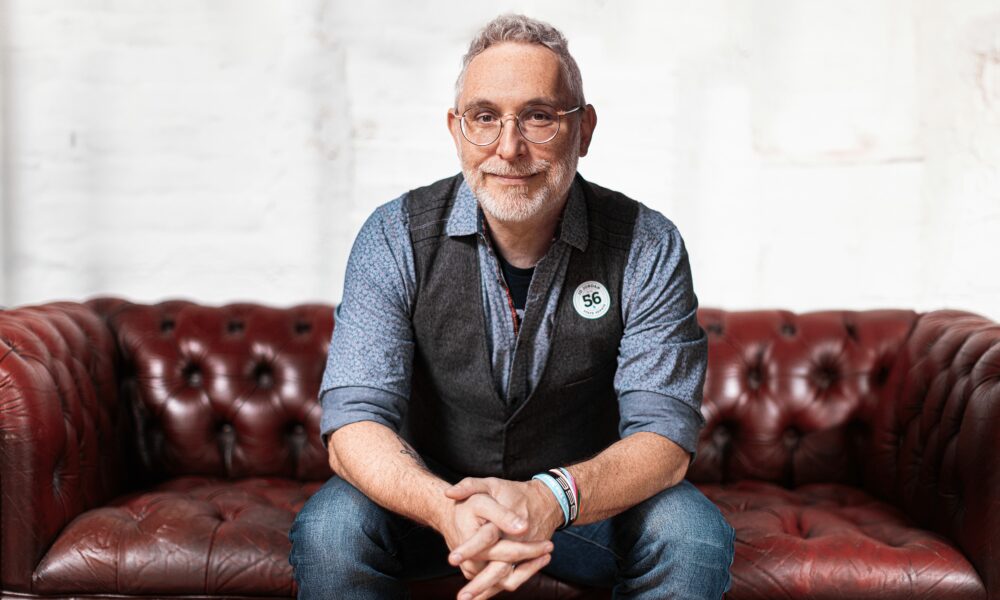

Today we’d like to introduce you to JD Jordan
Hi JD, so excited to have you on the platform. So before we get into questions about your work-life, maybe you can bring our readers up to speed on your story and how you got to where you are today?
I’m a veteran design leader with over 25 years’ experience working with some of the biggest creative agencies, consultancies, and brands in the Southeast and beyond. Alongside my amazing wife, I co-founded the #1 Clutch-ranked user-experience design agency, J+E Creative. I recently served as the Executive Design Director for MaxMedia in Atlanta, and am currently one of the founders of the Roswell-based digital product design consultancy, Sharpen Partners.
Throughout my career, I’ve used a process known as design thinking to create award-winning solutions for client’s ranging from startups to Fortune 500 giants. This user-centered, iterative problem-solving process emphasizes empathy, creativity, and collaboration to deliver effective solutions for almost any audience in almost any industry—from small business, enterprise, and even government.
I’m also the award-winning author of the acclaimed scifi-western novel, Calamity: Being an Account of Calamity Jane and Her Gunslinging Green Man—a Philip K. Dick Award nominee, Georgia Author of the Year nominee, and Nook selection. My writings—fiction and non-fiction—have been featured in Creative Loafing, The Grantville Gazette, The International Journal of the Book, Newsweek, Paste, and Smashing Magazine. My novel-length work is represented by The Zack Company.
I’m also an accomplished teacher and public speaker. I taught US history at The University of Georgia and design at the Atlanta College of Art, Creative Circus, and General Assembly. I’ve even led training programs for companies and organizations ranging from Mailchimp to the US Department of Defense.
I grew up in the North Atlanta suburbs—the son of a pediatric registered nurse from Quebec and a chemical engineer from New Hampshire—where I attended Holy Innocents’ Episcopal School and graduated as part of their first high school class. I later attended St. Andrews University, Scotland, and graduated from both Hampden-Sydney College, Virginia, and the University of Georgia (Go Dawgs!) with a bachelors in medieval history and a masters in US-Middle Eastern foreign policy history, respectively.
A proud child of the 80s and 90s, I like to think I’ve grown with the metro area, embracing the optimism, the diversity, and the hustle that’s brought our area so much success—from the Olympic Games to our status as one of the fastest growing states and economies in the country.
But of all my professional accomplishments, I most love being a dad.
My family is big and blended and amazing! My wife Ellie—a former film actress who currently places creative and technology staff as a recruiter—and I live in downtown Roswell with our five awesome kiddos. Malcolm, Sean, Jack, Matthew, and Lily range from 14 to 18 and attend Roswell High School or are recently graduated from it. We also have three dogs, two cats, and two turtles. Oh my.
We all face challenges, but looking back would you describe it as a relatively smooth road?
As the ancient Stoics might observe, the obstacle has been the way in both my professional and personal lives.
Like a lot of creative professionals, I’ve faced my fair share of professional challenges—chief among them, a lack of appreciation for the value I bring to the table as a designer. Because there are no certifications and very few professional credentials for user experience designers—and because so many non-designers shared a narrow view of creative as a garnish on professional services—the job has never been about only doing an exceptional job for clients. It’s also always been about communicating how and why what designers do is valuable to the business and has a unique and powerful impact on outcomes.
While at times this has felt like an obstacle, this reality has also honed and matured my skills as a businessperson—never assuming and always prepared to make a reasoned business case for every design decision. And that sharpness has profoundly benefited my consulting businesses. Experience designers who understand the nuances of business—and who can bring that to the table alongside their design-thinking expertise—are some of the most insightful and transformative people in the workforce.
And like a lot of families, mine has been through a lot: The blending of two households, experimenting with charter schools, sudden health emergencies (for both Ellie and me), and struggling with health insurers as small business entrepreneurs. And through it all, Ellie and I have always encouraged our kids to be themselves, whatever that might be, as long as they don’t hurt themselves or others. This simple rule has launched more great conversations and experiences than I can count. It’s also given two of our kiddos the space they needed to explore who they are as young trans people.
Appen media covered our family back in May when our incumbent state senator sponsored Georgia’s anti-trans bill, blocking lifesaving healthcare options critical to helping trans kids deal with depression, anxiety, eating disorders, self-harm, and suicidal thoughts.
This anti-trans law targets my kids. It endangers them. And when I—a constituent, neighbor, and former co-worker—tried to reach out to him about this issue, all I got was silence.
So, we took the latest step in our journey as parents and entrepreneurs: We launched a trans family meetup group to give trans youth and their parents a safe place to socialize, share their journeys, and learn from one another. And we launched a campaign to better represent Georgia State Senate District 56—East Cobb, Roswell, and Woodstock.
Trans rights aren’t isolated to a tiny segment of the population. And trans people aren’t some “other.” They’re my family. Their rights are my rights. And, frankly, trans rights are a canary in the proverbial coal mine. Our incumbent senator’s attack on their personal healthcare freedoms reveals how fragile all our freedoms are in the face of ignorance and a lack of empathy.
I just want my kids to have all the freedoms and space they need to become their best selves. Those are the same freedoms I want, too. For all of us.
Alright, so let’s switch gears a bit and talk business. What should we know about your work?
About a year ago, my family made the decision to jump into Georgia politics. It was never something my wife or I planned for. But when the state legislature made it more difficult for our minor children to get life-saving healthcare, we felt compelled to act.
In many ways, this journey of candidacy and—hopefully—into public service combines a great many of the skills I’ve picked up along the way as a design consultant. My product-mindset means that I’m not interested in simply blasting the electorate with marketing. I want to give them something useful, to help them understand the issues and their place in them. And my skills as a creative—rhetoric, visual composition, content strategy, minimum-viable-product design, customer-experience service design—mean that I’m able to do far more with a challenger’s budget than my incumbent opponent is able to do with his entrenched war chest. These skills also combine to allow me to offer a differentiator few candidates and legislators are equipped for: A best-in-class constituent experience.
To say that our government is a technical laggard is generous at best. Not only is our constituent experience far behind private-sector customer best practices, we’re way behind the curve compared to other wealthy and developed democracies. And the sad truth is, the vast majority of our elected representatives would fail any reasonable customer-experience assessment—just try to have a discussion with our opponent about a legislative issue and you’ll see how bad it can be.
Neither constituents nor our elected officials have the tools, training, or funding to use best-in-class software solutions to improve communication, engagement, and transparency. But we can only solve problems together when we engage in real dialogue—across ideological lines—and when we’re looking at the same data. It’s incumbent on our elected officials to listen to their constituents, provide all of them equal access to representation, and to communicate clearly and proactively with us about the job they’re doing on our collective behalf.
We’d be interested to hear your thoughts on luck and what role, if any, you feel it’s played for you?
Much of what I do—as a designer, a writer, or a political candidate—is solitary and exhausting work. But it’s also exhilarating and energizing work
But the hardest part wasn’t any of these activities or their related stresses. Or even the time it all took—my novel, for instance, too ten years to get from my brain to Barnes and Noble. The hardest part was getting anyone else to give a damn. Because the truth in authorship or as in any creative pursuit, is that all the talent and craftsmanship and effort in the world isn’t enough unless you’re struck by lightning.
In talking about lightning, I’m actually heaping metaphor upon metaphor—but stick with me. I’m fortunate that in my day job, as a user experience designer, I deal with criticism and rejection all the time. It’s actually an embraced part of the user-centered design process. And as a designer I am exposed to a lot of startup companies and rapidly-prototyped projects. Fail fast, is the motto. Make a lot of good work and something will succeed. And, overall, I believe this is true. Doing a lot of work will improve your craft and it will also create more work you can get in front of more people and increase your chances for success.
Darius Kazemi likened this creative process to buying lottery tickets in his 2014 XOXO Festival talk, saying that “beyond a certain level of effort there’s basically no correlation between the amount of work you put into something and how successful it is.” Recognition, he argues, especially in the forms of good reviews, money, and success, is primary the result of a combination of luck and privilege. I think most creatives know this, instinctively and it can be humbling to accept. Unless we remember that “conceiving of a creative project and building it, that’s buying a lottery ticket,” and that we should be cautious about looking to other creatives for advice. “There are two kinds of creative advice that you can get from creative people. The first, is how to buy more lottery tickets. And the second is how to win the lottery … the former can be extremely useful and the latter is nonsense.”
PJ Vogt of Gimlet’s Reply All podcast takes Kazemi’s metaphor one step further, reminding us that no one has figured out the algorithm to creative success. Not really. “People are running around outside holding giant metal poles, hoping to get struck by lightning. And, sometimes, some of them do. And the smart ones realize that it wasn’t because they were doing a better job holding their pole … If you do more projects, you’ll have more chances for things to hit.”
It might be tempting to dismiss two technologists talking about lotteries and lightning strikes. The technology space and the world of authorship are, superficially, very different. Except they’re both populated by creative people with very specialized skills who create work for very competitive markets.
Case in point, I once had the privilege to lunch with the wildly successful author Brandon Sanderson. And when I, as the budding author, asked him those same questions I’m now starting to get—how did he get his ideas, how long did it take him to write, and how long to publish?—he was refreshingly frank. He told me he wrote a lot of books before his first Mistborn novel was picked up. But that he just kept writing, hoping something he was passionate about would find the write agency and, eventually, the right editor. And (ready for irony heaped upon irony?) I’ll now be next to him on the shelf, where he took over Robert Jordan’s fantasy epic and also published a novel titled Calamity earlier this year!
You might find a certain fatalism in all this subjectivity and apparent randomness. I could be discouraging. But it shouldn’t be. Because once you realize that forces outside your control are such a huge part of your success, you can stop taking every piece of negative feedback or rejection quite so personally. After all, it’s not your fault if the wrong Ping-Pong ball drops or when lighting strikes elsewhere.
The only real answer about the role of luck in my career is: I kept buying lottery tickets and wandering around in the rain with more and more poles. And eventually I got lucky.
Contact Info:
- Website: https://www.forthe56.com
- Instagram: https://www.instagram.com/jdjordan.forthe56/
- Facebook: https://www.facebook.com/forthe56
- Twitter: https://www.twitter.com/forthe56
- Youtube: https://www.youtube.com/channel/UCYiArBrqXNQcdAYbGDmO_lA
- Other: https://www.tiktok.com/@jdjordan.forthe56
